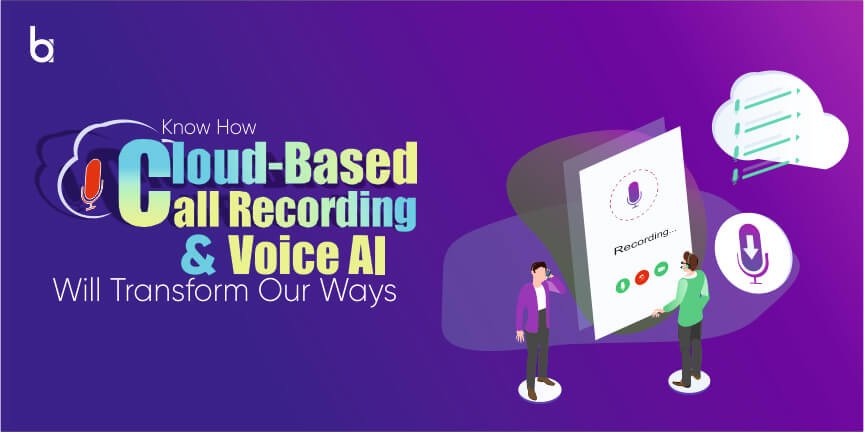Cloud-based call recording
From the time the telecom industry began providing voice exchange service; people enjoyed talking to friends, families, and relatives immensely. In the beginning, engaging in a conversation with people who were miles away in just one dial was a miraculous experience on its own. Initially, when it was introduced to companies, many were clueless and inactive for some time. Soon, organizations began exercising customer service platforms at all levels to communicate with clients. They started hiring and training separate teams to troubleshoot customer grievances. Ultimately, this started playing a significant role in the company’s growth and success.
Unquestionably, the comprehensive range of innovative products and facilities are of prime importance, but it seems useless if the customer service is not as functioning smoothly. Customer care via phone calls plays a vital part when it comes to giving effective client support. Therefore, organizations make sure that customers are properly taken care of by their sub-organized customer services via calls.
Call recordings help in a similar manner. Previously, the call recordings were made by using traditional hardware solutions. But as technologies began influencing businesses in every sector, it called for a change; from using old massive hardware for call recordings to updating into cloud-based call recording solutions. This change from existing, expensive, and impractical hardware solutions to affordable, flexible and favorable ones became valuable for all businesses.
Cutting-edge technology solutions answering old challenges
Technology has been helping businesses to simplify complex and bulky devices into more easy and compact solutions. Similarly, the traditional file storage methods were monotonous and had numerous limitations. The process of frequent installation of software or hardware was stressful to manage. The most serious and annoying issue with the old storage method was accessibility and data loss. With cloud-based call recording software, the recorded calls can be retrieved easily and become available instantly at just one click. It also assures that one does not have to wait for the recording to be processed and delivered; rather all processes happen in real-time on the cloud. Now, companies don’t have to buy those grueling software or hardware anymore. All they have to do is opt for cloud-based voice recording services.
To back the benefits of cloud-based call recording software, a recent study at Rackspace Hosting and Manchester Business School showed great cost savings of 86% of cloud users and 56% agreed that cloud service helped them boost profits. Moreover, 60% of respondents claim that cloud service reduced their need for the IT team to maintain infrastructure.
A Step Forward: Use of Voice-AI in Smart Homes
Moving ahead from the cloud-based voice recording solutions, AI is a term thrown around and heard a lot these days. Mostly from fantasy or sci-fi movies and on TV, this generation of viewers has a sound idea about the upcoming disruptive technologies. In terms of what’s beyond voice and AI is often a bundled-up term suggesting a collection of different technologies that do different things. This means using big data, sensors, and machine learning algorithms to create new ways of analyzing voice and other data to make homes smarter without being programmed.
Let’s suppose an example; a user comes home at night and opens his garage and then again sits back in the car and parks it. If a voice-controlled home automation system is installed to support natural language voice commands, then it will open the garage, turn on the lights, and close the gate automatically after the car being parked. As simple as that, right?
How AI is meant to alter human efforts in the future?
Not more than a decade ahead in the future, humans are going to witness the exact of what they are imagining right now. AI will become a regular necessity and laid down into daily routines. Voice AI coupled with other advanced technologies will make even more experience magical.
Right now, the smart speaker is the next big thing soon on the fast-track to becoming ubiquitous. Thanks to Amazon, Google, Alibaba, and others. The first tech innovator of this arena, Baidu who brought a possibility of cloning human voice has now found a top place in digital history.
Conclusion
Summarising, modern technologies offer humans a rapid, flexible, secure, and automated solution over burdensome tasks. Be it cloud-based call recording software solutions or its adoption in AI-operated smart homes. It is up to organizations and entrepreneurs how and to what extent they leverage these technologies.















